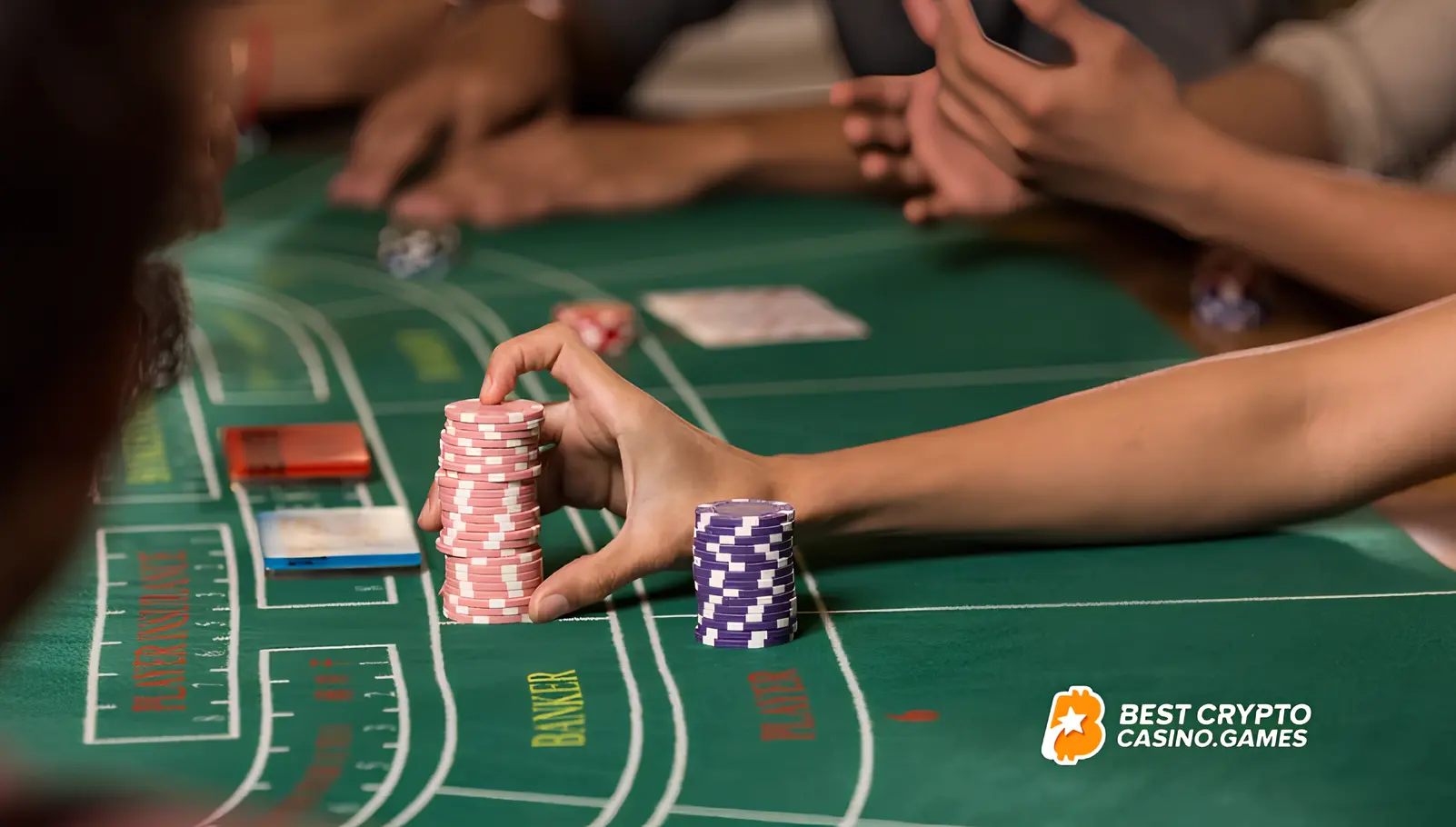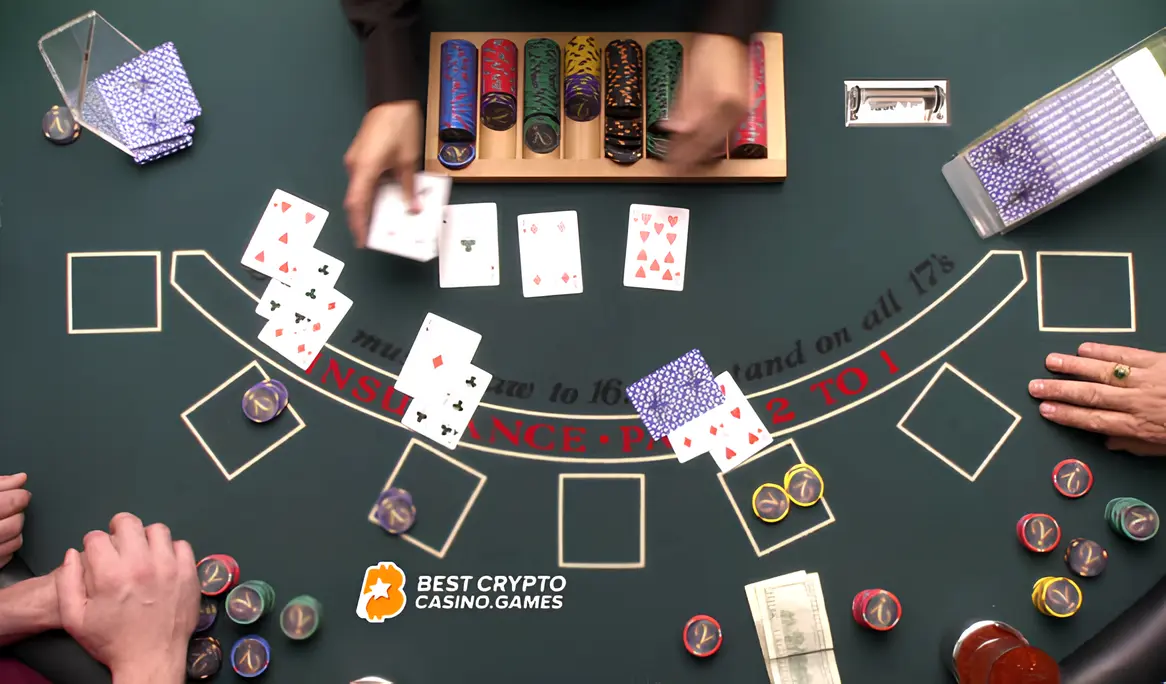Edge Sorting: Is It Clever Strategy or Just Cheating?

When it comes to gambling strategies, there’s no shortage of debate about which tactics are legitimate and which cross the line. One particularly controversial method is edge sorting, a technique that has made headlines for its brilliance and its legal battles. From Phil Ivey edge sorting scandals to the mechanics of how does edge sorting works, this strategy has captivated and divided the gambling world. Let’s dive into what is edge sorting in cards, explore its implications, and see if it’s a strategy worth praising or condemning.
Before we begin, if you’re a fan of innovative gambling options, check out Best Crypto Casino Games for a cutting-edge experience. The platform gathers the best and fairest online casinos, offering players to experience exciting opportunities and real excitement.
What Is Edge Sorting?
To understand the debate, let’s start with the basics: what is edge sorting in gambling? At its core, edge sorting is a technique used by skilled players to exploit minor imperfections in the design of playing cards. These imperfections — such as asymmetrical patterns or uneven borders — can be used to identify specific cards without seeing their faces.
The edge sorting meaning lies in the ability to recognize and categorize cards based on these subtle manufacturing inconsistencies. This technique is particularly effective in games like baccarat, poker, and blackjack, where knowing the value of certain cards can shift the odds in a player’s favor. While casinos rely on randomness to maintain their house edge, edge sorting allows players to tilt the game in their direction through observation and strategy rather than manipulation or cheating.
How Does Edge Sorting Work?
The edge sorting technique requires a sharp eye and excellent observation skills. Players look for slight irregularities on the backs of cards, such as inconsistent patterns or borders. These discrepancies become the basis for tracking high-value cards during gameplay.
An edge sorting example in baccarat might involve identifying cards like 6s, 7s, 8s, and 9s, which are critical to winning. Players often request that the dealer rotate certain cards under the guise of superstition, ensuring they remain oriented in a way that makes tracking them easier. Want to try your luck in a transparent gaming environment? Explore crypto live casino games for fair and innovative gaming options.
Phil Ivey and the Rise of Edge Sorting
If there’s one name synonymous with edge sorting, it’s Phil Ivey. A poker legend and high-stakes gambler, Ivey is widely recognized for his strategic brilliance across various casino games. However, his association with Phil Ivey edge sorting made headlines worldwide when he used the technique to amass millions in winnings.
Ivey’s ability to analyze every aspect of a game—from reading opponents at the poker table to spotting card irregularities—elevated him to legendary status. However, his use of edge sorting led to both massive casino victories and significant legal disputes, igniting debates on whether his methods were an ingenious strategy or an unethical exploitation of casino flaws.
Phil Ivey Baccarat Scandal
The Phil Ivey baccarat scandal is perhaps the most well-known instance of edge sorting in action. In 2012, Ivey and his accomplice, Cheng Yin Sun, implemented this technique at two major casinos — Crockfords in London and Borgata in Atlantic City. Their method was simple yet effective:
- They identified a deck with distinguishable card patterns.
- They persuaded dealers to rotate certain cards under the pretense of a lucky superstition.
- They placed large bets based on the identified high-value cards.
At Crockfords, the duo secured £7.7 million in winnings, while at Borgata, they walked away with nearly $10 million. However, both casinos refused to pay out their winnings, arguing that their actions violated fair play principles. Legal battles ensued, ultimately ruling in favor of the casinos and establishing a legal precedent regarding edge sorting.
Phil Ivey Legal Troubles
The Phil Ivey legal troubles sparked heated debates about the ethical boundaries of casino gaming. Ivey defended himself by asserting that he had not tampered with the game or used any external devices. Instead, he merely leveraged his observational skills—an ability that every successful gambler must cultivate.
However, the courts ruled against him, concluding that his actions breached the contractual terms set by the casinos.
This case set a precedent for future disputes involving casino strategies. Many establishments have since introduced stricter controls on card handling, ensuring that decks are shuffled frequently to prevent edge sorting. The Phil Ivey casino saga remains one of the most famous gambling controversies, serving as both a cautionary tale and a testament to the power of strategic thinking in gambling.
Is Edge Sorting Illegal?
A key question surrounding this controversy is: Is edge sorting illegal? The answer isn’t straightforward. Edge sorting doesn’t involve physically altering cards or using unauthorized devices, which means it isn’t illegal in a criminal sense. However, most casinos consider it against their rules, treating it as an unfair advantage.
Casinos have the right to refuse payouts and ban players caught using this technique. For instance, Phil Ivey banned from multiple establishments illustrates how seriously the industry takes edge sorting. His case set a precedent that, while not illegal, edge sorting is widely considered unethical in regulated casinos.
What Is Edge Sorting in Baccarat?
Baccarat is where edge sorting is most effective. Knowing whether the next card is high or low significantly improves betting decisions. But what is edge sorting in baccarat exactly? It involves identifying high-value cards — such as 8s and 9s — through card edging, then adjusting bets accordingly.
For edge sorting to work, the player needs a cooperative dealer willing to rotate specific cards. This method requires both sharp observation and psychological manipulation, making it as much a mental game as a physical one.
Edge Sorting in Poker and Blackjack
While poker mainly relies on bluffing and skill, what is edge sorting in poker? In high-stakes games, noticing subtle variations on the backs of cards can help track specific ranks, offering a strategic edge in crucial moments.
What is edge sorting in blackjack compared to baccarat? The technique is less effective due to frequent shuffling and multiple decks. However, in rare cases where the same deck is used for extended periods, recognizing edge markings could help predict upcoming dealer cards.
For those looking for a more transparent gaming experience, crypto casino table games provide fairness through blockchain technology, eliminating any concerns over marked or manipulated cards.
Phil Ivey Cheating or Genius?
Was Phil Ivey cheating, or did he simply outsmart the system? This debate continues, with some arguing he skillfully exploited a flaw, while others believe he crossed the ethical line.
Pros of Edge Sorting
- Better Odds. Identifying key cards can tilt the game in your favor.
- No Physical Tampering. It’s a skill-based method rather than outright cheating.
- Demonstrates Strategy. Requires observation, intelligence, and psychological tactics.
Cons of Edge Sorting
- Ethical Concerns. Some see it as exploiting an unintended flaw in casino operations.
- Legal Risks. Cases like the Phil Ivey baccarat scandal show the potential consequences.
- Bans & Restrictions. Many casinos have tightened security to prevent edge sorting.
Edge Sorting Example in Action
Imagine you’re in a high-stakes baccarat game and notice that some cards have slight irregularities — a classic card edging flaw. By subtly requesting the dealer to rotate specific cards, you track their positions throughout the game. This allows you to place informed bets without ever breaking the official rules — yet casinos see it as an unfair advantage.
Conclusion
The Phil Ivey controversy highlights both the brilliance and risks of edge sorting. While his methods were undeniably clever, they also led to lawsuits and bans, proving that even the most innovative gambling strategies can have serious repercussions.
So, is edge sorting a genius tactic or an unfair exploit? While it showcases incredible skill, it often violates casino policies, making it a risky strategy. The Phil Ivey controversy highlights both the brilliance and risks.
For those who prefer a more transparent playing field, Crypto Casino offers a fair alternative, where blockchain ensures that all outcomes are purely random and beyond manipulation. At the end of the day, whether you embrace edge sorting or not, the key to gambling is enjoying the game responsibly.



